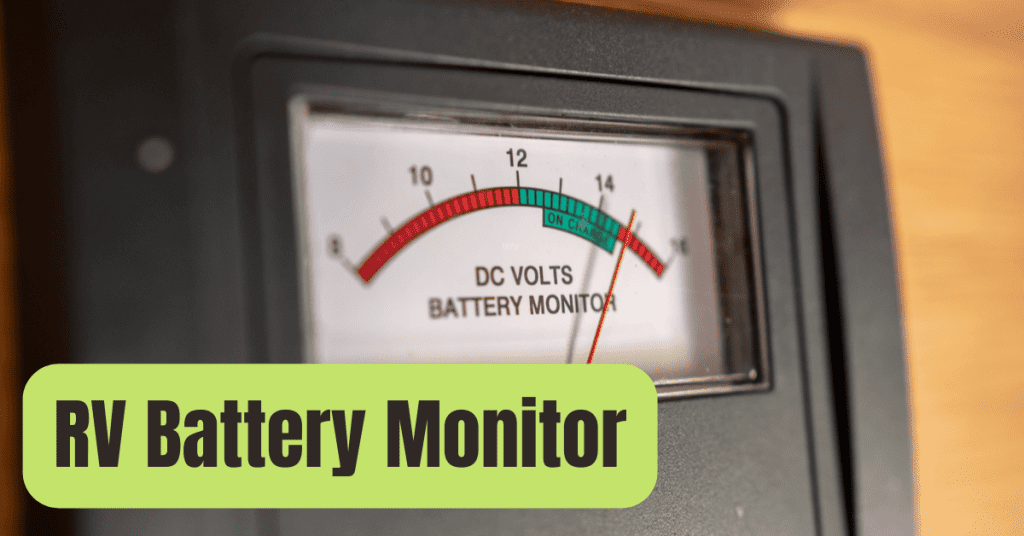Lithium-ion battery technology has greatly advanced over time, drastically reducing the likelihood of any incident.
Things still fail for a variety of reasons.
As a result, many people are curious about how to identify a defective lithium-ion battery.
Reduced capacity, low voltage, a high rate of self-discharge, overheating, and a bloated body are among the many signs and symptoms that may be present.
In this article, I’ll go over how to test lithium-ion batteries and how to tell when they’re no longer functional.
Let’s get going.
How to Spot a Bad Lithium-Lon Battery
You should be aware of how the specific model is intended to perform before you begin the battery testing.
Knowing the lithium-ion battery’s maker and the model’s specifications is the best approach to learn more.
Then, using a multimeter, gauge the voltage, resistance, and efficiency.
Use the Universal Battery Checker Tester with Leads LCD Display in this situation.
You may use the multimeter I recommended to evaluate performance or capacity.
In contrast to conventional meters, it can display the battery capacity % level exactly.
The procedures for testing it are listed below.
Back to the conversation now.
The meter is in excellent condition after you have determined that the readings meet the original specifications.
Or, a little change in the value may not indicate a problem.
There are other simpler techniques to determine if anything is amiss than this examination procedure.
#1. Capacity Reduction
Observing a decreased capacity is one of the first and most typical symptoms of a damaged battery.
What I’m trying to say is that your lithium-ion battery won’t be able to power the gadget for as long.
It will take many hours to confirm this symptom if you are not utilizing a testing.
Additionally, using self-discharging methods will make the process take longer.
#2. Low Voltage
All batteries begin to lose voltage over time.
The cutoff circuitry automatically disconnects it when a particular threshold is reached.
A lithium-ion battery with 4.2V, for instance, may transition to a 3.7V state after some time.
You’ll observe that the gadget is not operating after the voltage is down to 3.4V.
And when it reaches 3.0V, it is essentially dead.
Use a multimeter if you need to determine the present condition quickly.
#3. High Rate of Self-Discharge
I have to remind you that all batteries self-discharge, as I did with the preceding statement.
In other words, even when the battery is not being used to power a device, the charge is automatically reduced.
Good lithium-ion batteries often don’t self-discharge very rapidly.
After a couple of hours, disconnect the device’s battery.
Before and after disconnecting, check the charge capacity.
You must presume that it is defective if the figures are higher than the manufacturer’s recommended value.
#4. Excessive Heat
Overheating is one of the most visible symptoms of a defective lithium-ion battery.
Check the battery’s specifications once again to determine its usual operating temperature.
Anything greater than that should cause you concern.
Additionally harmful to the health of the electronic gadget is overheating.
#5. Bulging Body
Bloating is the last sign of a defective lithium-ion battery.
You won’t realize it until it’s too late, which is a terrifying reality.
We don’t constantly visually examine batteries since, once installed, we forget about their state.
It may cause batteries to swell as a consequence of the energy density and heat.
When you learn something similar, replace the old one right away.
How Can A Lithium-Ion Battery Be Tested?
You don’t need to be technologically skilled to operate a multimeter.
Lithium-ion batteries may be tested by anybody at home.
The steps are listed below.
Step 1: switch the meter on, position the knob for measuring voltage in the center, and you should see a reading with a decimal point after the first number.
Step 2: Next, take the battery you wish to test and attach the red probe of the meter to the positive side with the bumps.
Step 3: Immediately after that, attach the black probe to the negative side that is flat.
You can see the voltage measurement right here.
Observer’s tip: Even if you invert the connection, you will still get a reading—just one that is negative.
Step 4: At last, adjust the knob to the correct setting to get the desired reading.
You may better understand by watching this video.
FAQs
How Can A Multimeter Be Used To Test A Lithium Ion Battery?
A multimeter may be used by anybody to quickly test a lithium battery.
The preceding section describes how to accomplish that in detail.
How Can Lithium Ion Batteries Be Tested Without A Multimeter?
It is improper to test a lithium-ion battery without the necessary equipment.
You can see in this video that when dropped on a level surface, poor li-ion batteries don’t bounce as much as the good ones.
How Can A Dead Lithium Ion Battery Be Restarted?
Using a USB connection, you may jumpstart a lithium-ion battery that has died.
Cut the male end of the cord to reveal the wires.
Find the positive and negative terminals on the dead battery, then connect the relevant wires to the terminals before plugging it into a computer.
Your dead Li-ion battery will come to life after doing it multiple times.
How Can A Lithium Battery That Won’t Charge Be Fixed?
When a lithium battery won’t charge, there is a fix.
Drain the entire thing.
By attempting to switch it on until the battery gives out, you can confirm that there is 0% charge.
Recharge the lithium-ion battery for a minimum of 48 hours after that.
When not in use, do lithium batteries degrade?
A lithium-ion battery will undoubtedly malfunction over time if it is left inside a device or in a discharged state.
But if you store it correctly, it won’t go bad for a very long time.
Conclusion
I trust you now fully understand how to identify a defective lithium-ion battery.
The best methods to do the tests are via the processes and symptoms I’ve listed above.
But there are a ton of different approaches as well.
Before attempting the inspection method if you notice someone else doing it differently, investigate their degree of knowledge and sincerity.










